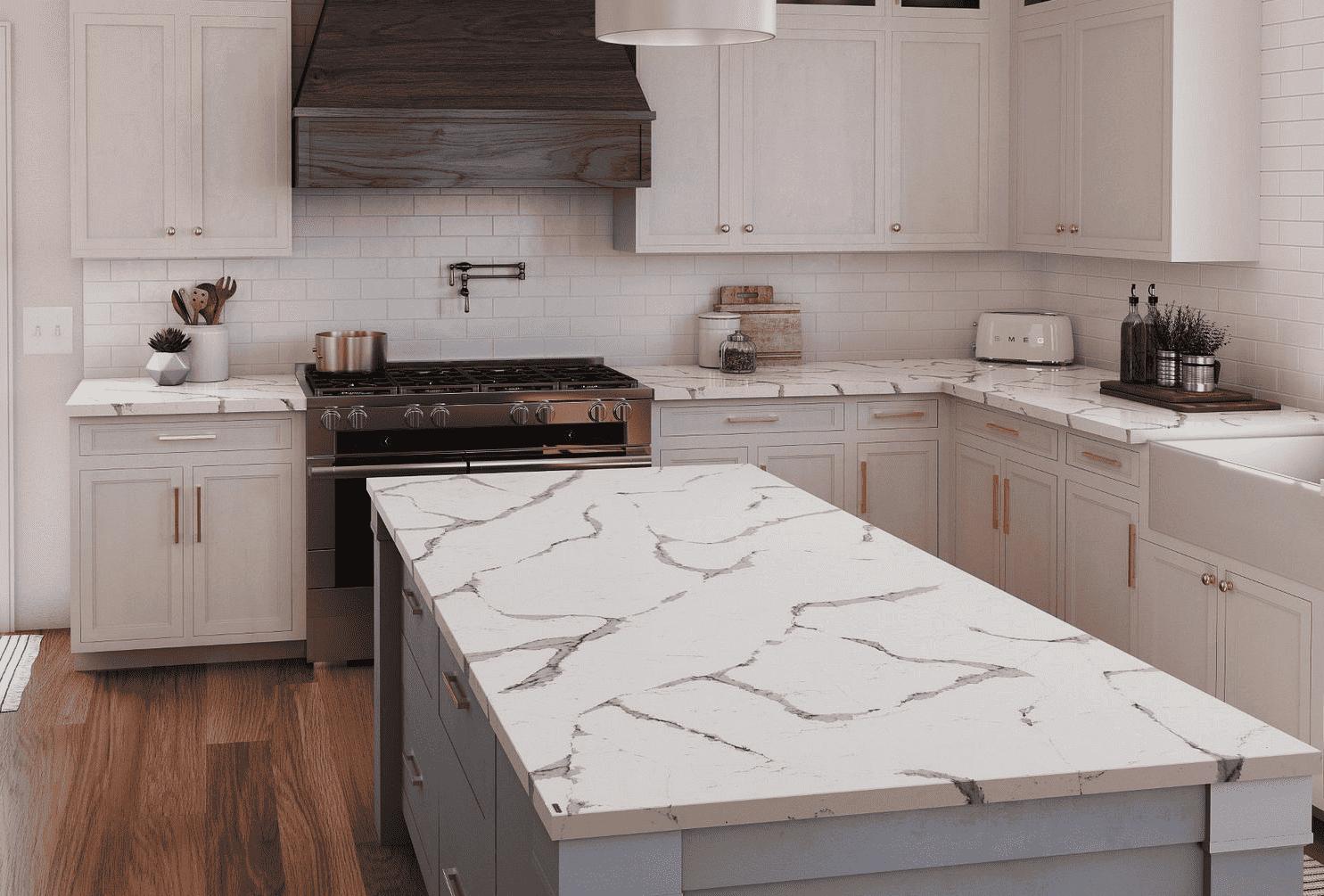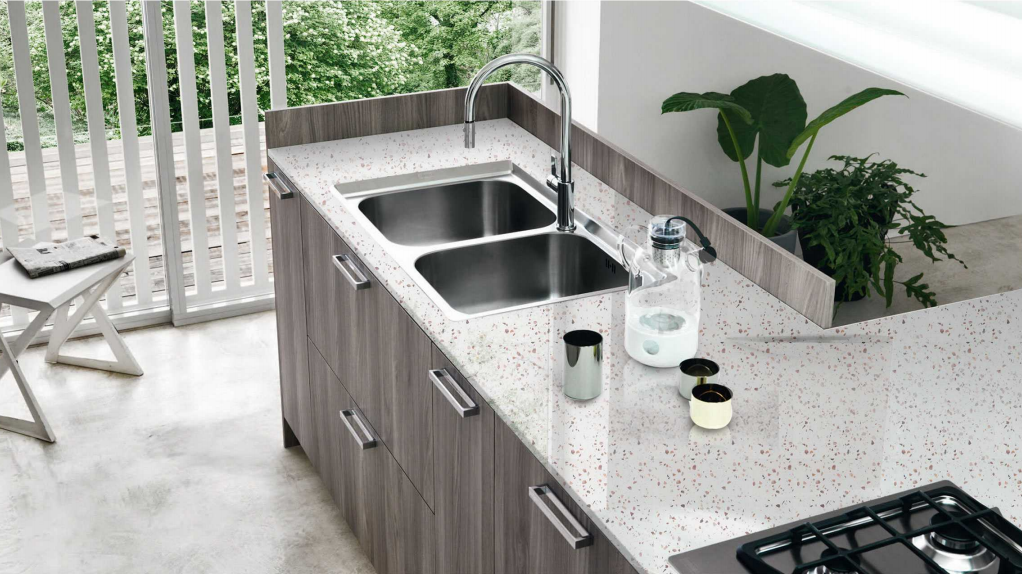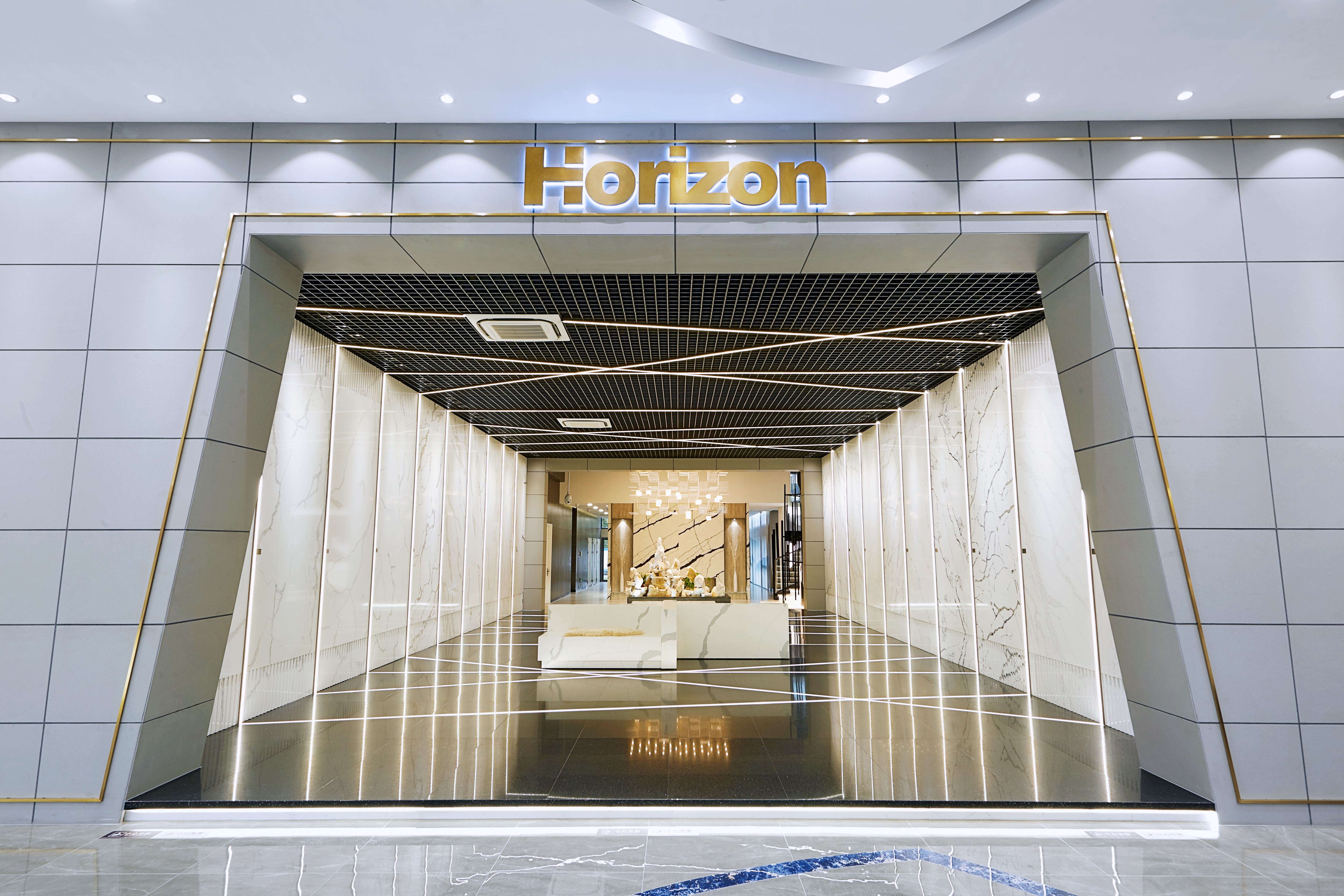The world of countertop materials is vast and diverse, with many options available to homeowners and interior designers. Two of the most popular options are sintered stone and quartz. Let’s take a deep dive into these materials types to compare their differences and ultimately reach a verdict on which one is best for your next project.
Sintered Stone
Sintered stone is a man-made material composed of crushed stone particles that are fused together using high-pressure compression and heat. It provides a sleek, modern appearance with a non-porous surface that is low-maintenance and easy to clean. Sintered stone is typically available in a range of colors and can be easily customized to match your design aesthetic.
Advantages of Sintered Stone
- Durable: Sintered stone is highly resistant to scratches, stains, and chipping, making it a great choice for high-traffic areas.
- Easy to Clean: The non-porous surface makes it easy to clean with just water and a mild soap.
- Versatile: Available in a wide range of colors and patterns, sintered stone can fit into any design scheme.
- Low Maintenance: No need for sealing or resealing, as the surface is naturally non-porous.
Disadvantages of Sintered Stone
- Brittleness: Sintered stone can be brittle and more susceptible to impact damage compared to other countertop materials.
- Cost: Sintered stone countertops are typically more expensive than some other options on the market.Quartz
Quartz is a natural stone that is known for its durability and beauty. It is composed of silicon dioxide and is one of the most common minerals found on Earth’s surface. Quartz countertops are often categorized into two types: engineered quartz and solid-surface quartz. Engineered quartz is made from layers of quartz particles bound together by resin, while solid-surface quartz consists of a single piece of quartz.
Advantages of Quartz

- Durability: Quartz is highly resistant to scratches, stains, and chipping, making it a great choice for high-traffic areas.
- Versatility: Quartz countertops come in a range of colors and patterns, allowing you to customize the look to fit your design scheme.
- Chemical Resistance: Quartz is resistant to acids, bases, and other chemicals, making it a great choice for kitchen countertops.
- Easy to Clean: Quartz countertops are non-porous, making them easy to clean with just water and a mild soap.
- High-End Look: Quartz countertops have a sleek, modern appearance that adds a high-end look to any room.
- Green Option: Quartz is a renewable resource, making it an environmentally friendly option for countertops.
- Resistant to Heat: Quartz countertops can handle heat up to a certain temperature without damage.
- Low Maintenance: Quartz countertops require minimal maintenance and can be sealed with a protective layer once installed. However, solid-surface quartz does not require sealing as it is already sealed during installation.
- Cost-Effective: Quartz countertops are generally more cost-effective than other high-end countertop materials like granite or marble.
- Non-allergenic: Quartz is non-allergenic and does not release harmful substances into the air like some other materials do.

Post time: Nov-07-2023





